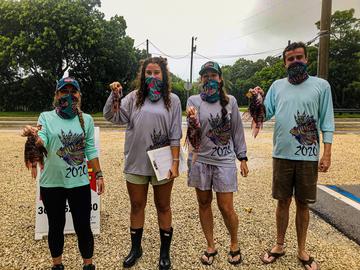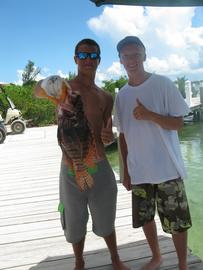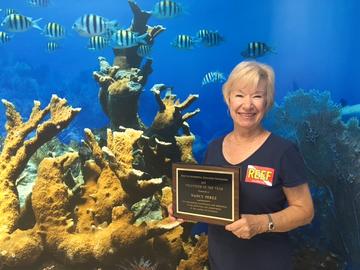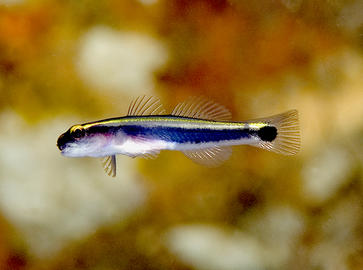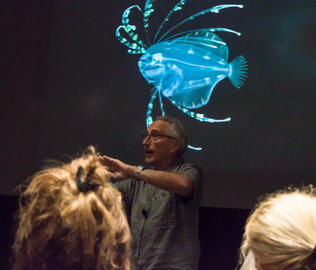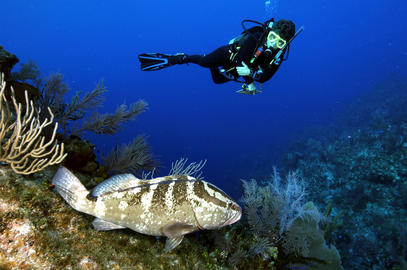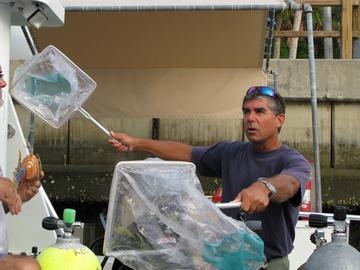In spite of Tropical Storm Sally’s unexpected appearance over south Florida, 23 teams brought in 1,321 invasive lionfish during the 2020 Upper Keys Lionfish Derby – the most fish ever harvested at a REEF Lionfish Derby held in the Florida Keys. Teams were permitted to fish anywhere in Florida, from sunrise to sunset on Friday, Sept. 11 and Saturday, Sept. 12. More than $4,000 in cash and prizes was awarded to teams who brought in the most, largest, and smallest lionfish.
While we can't do much about dreary winter weather, booking a trip for the coming year might be just the trick to lift your mood. REEF trips are a diver's dream vacation! Destinations include Fiji, Hawaii, the Bahamas, Roatan, Cozumel and more. Expert-led fish identification education combined with citizen science and world-class diving make our trips unique. Visit www.REEF.org/trips to find out more, and then contact us at trips@REEF.org or 305-588-5869 to book your space.
The second annual Abaco Lionfish Derby, held at Green Turtle Cay, Bahamas, on Saturday June 19th, was a huge success. Teams on twenty-one boats from Florida and the Bahamas enjoyed perfect weather and conditions while collecting a grand total of 941 lionfish. Over $5,000 in cash was awarded to the winning teams for the most, biggest, and smallest lionfish. This event, held in the Bahamas and sanctioned by the Bahamas Department of Marine Resources, is one of many REEF efforts to cull invasive lionfish populations and raise awareness about the issue.
REEF is proud to announce Nancy Perez as our 2017 Volunteer of the Year. REEF has over 67,000 members and Nancy is proud of her longtime support as member number 589! Nancy originally joined REEF because of her interest in diving, marine fishes and underwater photography.
When she moved to Key Largo in 1996, Nancy was closer to REEF’s Headquarters and looked for ways to be active in the community, learning more about REEF while volunteering for the Florida Keys National Marine Sanctuary.
In January, 2008 the National Aquarium Institute organized and conducted a Bahamian conservation expedition on the Aqua Cat live-aboard dive vessel. Our mission was to conduct REEF surveys and work on the invasive lionfish project. On board this trip were Lad Akins (REEF Special Projects Director), Ned and Anna DeLoach, Chris Flook (Bermuda Aquarium), National Aquarium staff, and aquarium and REEF volunteers. In addition to meeting the lionfish research goals of the cruise, we were treated to not one but two exciting and rare finds - the Exuma goby and the lemon goby.
The highly-anticipated sequel to Disney and Pixar’s “Finding Nemo”, “Finding Dory” opened in theaters in June, and was recently announced to be the highest-grossing animated film of all time. The titular character, Dory, is a Palette Surgeonfish (Paracanthurus hepatic), who spends the film searching for her family. Native to the tropical waters of the Western Pacific Ocean (REEF’s Central Indo-Pacific and South Pacific regions), these bright blue, reef-dwelling, algae-eating fish are also referred to as Pacific Blue Tangs, Hippo Tangs, or Regal Tangs.
REEF Fest is less than two months away! Please join us for a four-day celebration of marine conservation that includes snorkel and dive charters, ocean-themed seminars, and social gatherings with friends. Diving and snorkeling trips are offered on the mornings of Friday, Sept 21 and Saturday, Sept. 22. Space is limited, so please register as soon as possible. There is no need to call a dive shop to participate in REEF Fest diving or snorkel trips. Instead, visit the REEF Fest Diving webpage to register online.
REEF members are the heart of our grassroots marine conservation programs. A diverse community of divers, snorkelers, and ocean enthusiasts support our mission to conserve marine environments worldwide.
REEF Director of Science, Dr. Christy Pattengill-Semmens, and Grouper Moon Scientists, Dr. Brice Semmens (NOAA) and Dr. Scott Heppell (Oregon State University), participated in the Gulf and Caribbean Fisheries Institute (GCFI) meeting last month in Guadeloupe. This annual meeting brings together scientists, fishermen, resource agency managers, and marine conservation organizations to present and discuss current topics and emerging findings on coral reef resources of the tropical western Atlantic waters.
As part of REEF's efforts to increase awareness about the invasive lionfish, train removal teams and develop regional response plans, REEF recently conducted a series of workshops, talks and lionfish removals in partnership with the Gray's Reef National Marine Sanctuary (GRNMS) in Georgia and the Cozumel Marine Park in Mexico. Combined the two projects held in July 2009 included 15 talks to more than 370 people.

